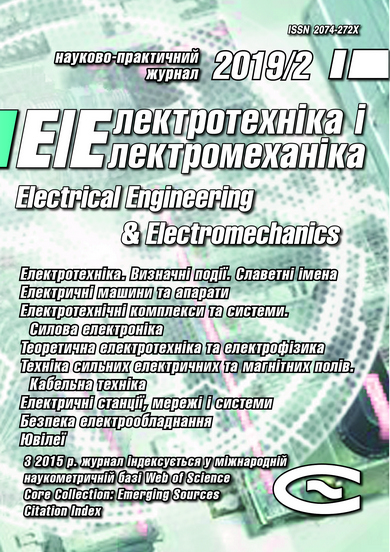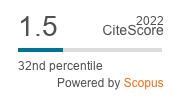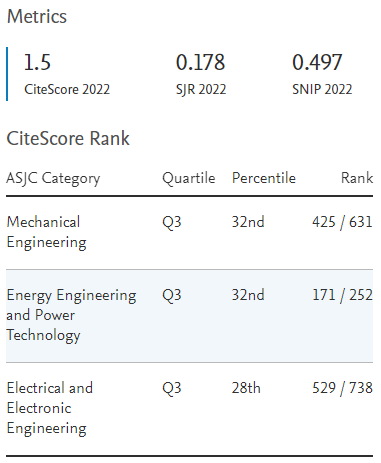RESEARCH OF THE MODES OF FULL COMPENSATION OF REACTIVE POWER IN A THREE-PHASE POWER SUPPLY SYSTEM
DOI:
https://doi.org/10.20998/2074-272X.2019.2.09Keywords:
reactive power, reactive power compensator, search optimization, visual model, three-phase power supply systemAbstract
Introduction The article is devoted to the issues of current balancing and reactive power compensation in a three-phase power supply system. Optimal in all these respects is the mode of full compensation of reactive power, by which we mean such a symmetrical mode, in which only active power is consumed from the source. The task of calculating the mode of full reactive power compensation is non-linear and can be solved using non-linear optimization methods based on the adopted parameters and optimization criteria. The objective of the article is to develop a visual model of the power supply system with an unbalanced load, in which current balancing and reactive power compensation is performed using a symmetrical-compensating device, which parameters are determined using search non-linear optimization tools and modern computer mathematics software packages. The purpose of the article is to research the modes of full compensation of reactive power in a three-phase power supply system with a linear asymmetric load in order to identify the ambiguity of solving the problem of synthesizing parameters of a reactive power compensator. Methodology of research consists in the development of a visual model of a power supply system that feeds unbalanced load. As a symmetrical compensating device, capacitors connected between the phases of the transmission line are used. The model is controlled by a program that launches the model and performs optimization and selection of optimization variable values. The optimization values are the capacitors of the symmetry-compensating device. The optimization criterion is a spherical metric consisting of the reactive powers of each source of electricity. Results lead depending on the choice of the initial values of the optimization variables, the optimization process enters two modes of full compensation of reactive power – main and additional. The main mode is characterized by small values of capacitors and small values of currents, and in the additional mode, these values of the system and operational parameters reach extremely large values that are unacceptable for practical use. Originality lies in the fact that in terms of optimization theory this means that there is no global optimum in the solution of the problem of full compensation, however, there are two local optimums. Both modes are stable, as evidenced by modeling on the SPS-model of the system in the time domain in the space of state variables. Practical significance of the work lies in the fact that when designing a microprocessor system that optimizes the operating mode of the power supply system, it is necessary to envisage the situation of additional mode.References
Arrillaga J., Watson N.R., Chen S. Power system quality assessment. John Wiley, 2000. 300 p.
Acha E., Agelidis V.G., Anaya-Lara O., Miller T.J.E. Power Electronic Control in Electrical Systems. Newnes, 2002. 443 p. doi: 10.1016/B978-0-7506-5126-4.X5000-7.
Hofmann W., Schlabbach J., Just W. Reactive Power Compensation: A Practical Guide. John Wiley & Sons, 2012. 274 p.
Azzam M., Mousa A.A. Using genetic algorithm and TOPSIS technique for multiobjective reactive power compensation. Electric Power Systems Research, 2010, vol.80, no.6, pp. 675-681. doi: 10.1016/j.epsr.2009.10.033.
Jeon S.-J., Willems J.L. Reactive power compensation in a multi-line system under sinusoidal unbalanced conditions. International Journal of Circuit Theory and Applications, 2011, vol.39, no.3, pp. 211-224. doi: 10.1002/cta.629.
Yagup V.G., Yagup E.V. Primenenie optimizatsionnykh metodov dlia resheniia zadach uluchsheniia pokazatelei elektricheskikh sistem [The use of optimization methods for solving problems of improving the performance of electrical systems]. Kharkiv, KNAME of A.N. Beketov Publ., 2017. 170 p. (Rus).
ChapraS.C., Canale R.P. Numerical methods for engineers. McGraw Hill, Higher Education, 2006. 926 p.
Nathews J.H., Fink K.D. Numerical methods. Prentice Hall,UpperSaddleRiver, 2001. 720 p.
Friedland B. Control system design: an introduction to state-space methods (Dover Books on Electrical Engineering). Dover Publications Inc.Mineols,New York, 2005. 620 p.
Chernykh I.V. Modelirovanie elektrotekhnicheskikh ustroistv v MATLAB, SimPowerSystems i Simulink [Modeling of electrical devices in MATLAB, SimPowerSystems and Simulink]. Moscow, Peter Publ., 2008. 288 p. (Rus).
Downloads
Published
How to Cite
Issue
Section
License
Copyright (c) 2019 V. G. Yagup, E. V. Yagup

This work is licensed under a Creative Commons Attribution-NonCommercial 4.0 International License.
Authors who publish with this journal agree to the following terms:
1. Authors retain copyright and grant the journal right of first publication with the work simultaneously licensed under a Creative Commons Attribution License that allows others to share the work with an acknowledgement of the work's authorship and initial publication in this journal.
2. Authors are able to enter into separate, additional contractual arrangements for the non-exclusive distribution of the journal's published version of the work (e.g., post it to an institutional repository or publish it in a book), with an acknowledgement of its initial publication in this journal.
3. Authors are permitted and encouraged to post their work online (e.g., in institutional repositories or on their website) prior to and during the submission process, as it can lead to productive exchanges, as well as earlier and greater citation of published work.





